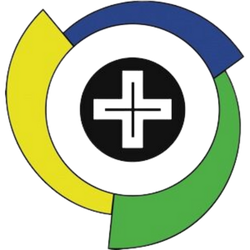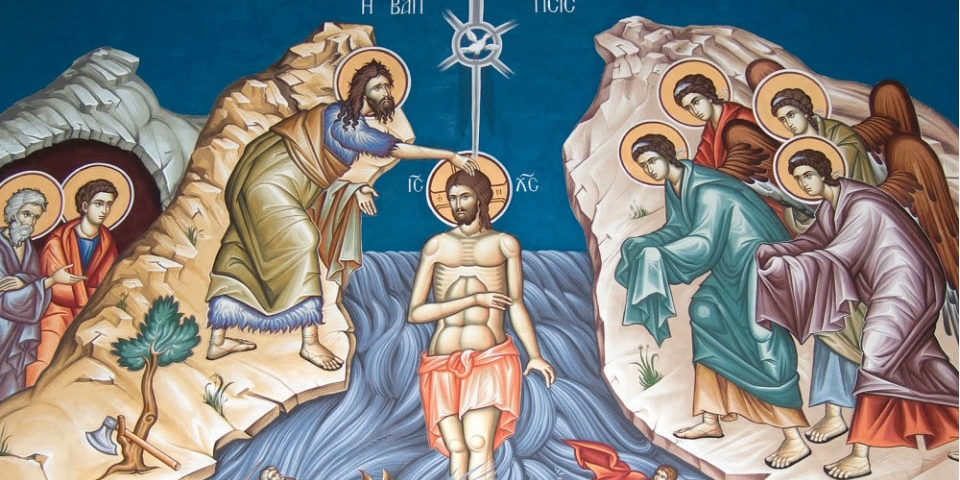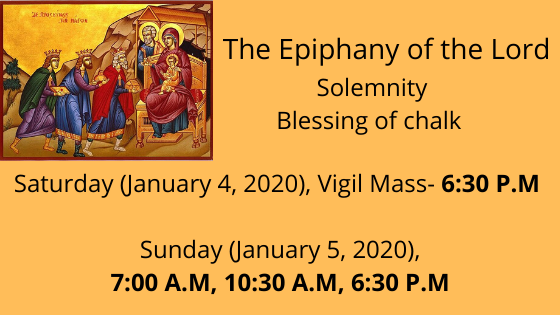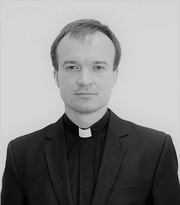|
Dekret
W czasach Covida-19 (II) Biorąc pod uwagę szybką rozwijającą się pandemię wirusa Covid-19 i biorąc pod uwagę uwagi otrzymane z różnych Konferencji Episkopatu, Nasza Kongregacja pragnie zaktualizować ogólne wskazania i sugestie już wcześniej przekazane biskupom w dekrecie z 19 marca 2020 r. Ponieważ data Wielkanocy nie może zostać przeniesiona, w krajach dotkniętych chorobą, gdzie przewiduje się ograniczenia dotyczące zgromadzeń i przemieszczania się ludzi, biskupi i prezbiterzy odprawiają obrzędy Wielkiego Tygodnia bez udziału ludu i we właściwym miejscu, unikając koncelebry i pomijając znak przekazania pokoju. Wierni są informowani o czasie rozpoczęcia celebracji, aby mogli przyłączyć się do modlitwy w swoich domach. Pomocne mogą być transmisje na żywo, niezarejestrowane, przekazane przez środki komunikacji. W każdym razie ważne jest, aby poświęcić odpowiednią ilość czasu na modlitwę, szczególnie ubogaconą poprzez Liturgia Horarum (Liturgii Godzin). Konferencje Episkopatu i poszczególne diecezje dołożą wszelkich starań by przyjść z pomocą rodzinom i poszczególnym osobom ofiarując materiały pomocne w osobistej modlitwie. 1 - Niedziela Palmowa. Pamiątkowy wjazd Pana do Jerozolimy celebruje się wewnątrz świętyni; w kościołach katedralnych przyjmuje się drugą formę przewidzianą w Mszale Rzymskim, w kościołach parafialnych i w innych miejscach trzecią. 2 - Msza Krzyżma. Oceniając konkretny przypadek w różnych krajach, Konferencje Episkopatu będą mogły dać wskazówki na temat ewentualnego przeniesienia na inną datę. 3 - Wielki Czwartek. Opcjonalny obrzęd obmycia stóp powinien być pominięty. Na zakończenie Mszy Wieczerzy Pańskiej procesja jest również pomijana, a Najświętszy Sakrament jest przechowywany w tabernakulum. W tym dniu Prezbiterzy są wyjątkowo upoważnieni do odprawiania w odpowiednim miejscu Mszy świętej bez udziału ludu. 4 - Wielki Piątek. W modlitwie powszechnej biskupi dołożą starań, aby przygotować szczególną intencję dla tych, którzy znajdują się w sytuacji zagubienia, chorych, zmarłych (por. Missale Romanum). Akt Adoracja Krzyża poprzez pocałunek jest ograniczony tylko do celebransa. 5 - Wigilia Paschalna. Powinien być sprawowany wyłącznie w katedrach i kościołach parafialnych. W liturgii chrzcielnej zachowuje się jedynie odnowienie przyrzeczeń chrzcielnych (por. Missale Romanum). W przypadku seminariów, kolegiów kapłańskich, klasztorów i wspólnot religijnych przestrzega się wskazań tego dekretu. Nabożeństwa zakorzenione w pobożności ludowej oraz procesje, które wzbogacają dni Wielkiego Tygodnia i Triduum Paschalnego, zgodnie z rozeznaniem biskupa diecezjalnego, można przenieść na inne odpowiednie dni, na przykład 14 i 15 września. Z mandatu Ojca Świętego dano na rok 2020. Z Siedziby Kongregacji Kultu Bożego i Dyscypliny Sakramentów, 25 marca 2020 r., w uroczystość Zwiastowania Pańskiego. Robert kard. Sarah - Prefekt Arthur Roche - Arcybiskup Sekretarz
0 Comments
Dear brothers and sisters,
Today the Church celebrates the Feast of The Presentation of the Lord. Today we celebrate the close of the Christmas festival of light. During the liturgy candles are blessed and we carry them in procession to welcome Christ, the light to enlighten the Gentiles and the glory of his people. At the beginning of this homily can we ask, what is the meaning of today's feast? What do we celebrate today? Today's celebration took place exactly 40 day's after Christmas. Time goes so fast and today it seems that the celebration of Christmas was not so long ago, but truly 40 days have past. Maybe this reminds us that time is so precious a gift, which we receive from God, and we should use this gift according to God's will. The presentation of Jesus in the Temple is good opportunity to remember how close to us is our God, our Redeemer Jesus. Luke concludes the narrative of Jesus' birth with an account of what happened to him, in accordance with Israel's law, on the eighth day and on the fortieth day. Today's feast we remember what happened on the fortieth day after the birth of Jesus. Today's Gospel reminds us of a few facts, the first one: "Every first born male must be consecrated to the Lord - and also to offer in sacrifice, in accordance with what is said in the Law of the Lord, a pair of two young pigeons". Pope Benedict explaining this verse from Luke gospel teaches us: "Mary presented the offering of the poor. Luke, whose entire Gospel is shot through with a theology of the poor and a theology of poverty, is once again making is abundantly clear that Jesus' family belonged to the poor of Israel, and that it was among such as them that the promises world be fulfilled. Here too, we discover afresh what is meant by "under the law", what is meant when Jesus says to John the Baptist that all righteousness must be fulfilled. Mary does not need to be purified from the birth of Jesus, his birth ushers in the purification of the world. But she obeys the law, and in this way she servers the fulfillment of the promises". Certainly today's feast is a good opportunity to ask ourselves, what I can offer today to God? According to Pope Benedict Mary presented the offering of the poor. My personal condition, whether I am poor or rich is not important. What is important is the condition of my heart. Am I able to give to God some special gift? Maybe my time, my talents, maybe something else. Another important incident from today's gospel is a scene of prophecy. The old man Simeon and the prophetess Anna, prompted by the Spirit of God, appear in the Temple, and as representatives of faithful Israel and they greet the "Lord's Christ". These two people, Simeon and Anna they are for us an example how we can grow our faith. Today's Gospel describes Simeon using three things: he is righteous (just), he is devout, and he is looking for the consolation of Israel. He lives for the Redeemer, for the one who is to come. We could say that he is a spiritual man and is therefore attuned to God's call, to his presence. At this point we need to ask ourselves, am I ready to follow this example? Today I live for the Redeemer Jesus Christ, for the one who is coming into my live? Simeon told the parents of Jesus and today he tells us: Jesus is a sign of contradiction. Christ remains a sign of contradiction today, the teaching of Jesus and the teaching of Church today is criticized, as it was in the past and is today and will be tomorrow . Christ remains a sign of contradiction. We as Catholics must follow our Master and sometimes must be in our country and in our society a sign of contradiction. The second person is the prophetess Anna. She is the model of the truly devout person. She is quite simply at home in the Temple. She lives with God and for God, body and soul. So she is truly a spirit-filled woman, a prophetess. Because she spends her life in the Temple - in adoration- she is there at the hour of Jesus' appearing. The prophetess Anna is for us a model for how we should wait for our Lord Jesus Christ. Sometimes the answer from God comes only after long wait and she teaches us how to be faithful by constant prayer. Dear Brothers and Sisters, today's feast reminds us that Jesus was presented in the Temple, Simeon and Anna found Jesus in Temple. If today we want to find Jesus that is possible in the Church, during prayer and receiving the Eucharist. This is my Son, the Beloved; my favour rests on him.Dear brothers and sisters,
Today in the liturgy of the Church we celebrate the Baptism of the Lord. Today the voice of God proclaims: 'This is my Son, the Beloved; my favor rests on him'. Today's gospel and today's solemnity invites us to meditate about the mystery of Baptism. The Catechism of Catholic Church teaches us: "Holy Baptism is the basis of the whole Christian life, the gateway to life in the Spirit, and the door which gives access to the other sacraments". Usually Holy Baptism is the first sacrament which we receive at the beginning of our life. In our name our parents ask the Church for baptism. At this point we need ask ourselves, why does the Church accept the practice of baptizing children? They don't have a choice, children don't understand what is happening. Is it really good practice to baptize children? The Catechism of Catholic Church reminds us "Christian parents will recognize that this practice also accords with their role as nurturers of the life that God has entrusted to them". Christian parents have responsibility for the education of their children and especially religious education. At beginning of the rite of Baptism for Children there is a dialogue between the priest and the parents. The priest asks: What do you ask of God's Church for your child? The answer of the parents is: Baptism. After the priest explains the rite of baptism: You have asked to have your child baptized. In doing so you are accepting the responsibility of training your child in the practice of the faith. It will be your duty to bring him or her up to keep God's commandments as Christ taught us, by loving God and our neighbor. Do you clearly understand what you are undertaking? We need to pay special attention to the statement: "responsibility of training your child in the practice of the faith". The first teachers of the faith are the parents. They have a responsibility to transfer the faith. That is possible only if the parents believe in God and follow the teachings of the Roman Catholic Church. It is impossible to do this if I don't have faith. The parents must build a personal relationship with God and only then can this treasure be offered to their child. Sometimes in our society is very difficult be good parents. especially if parents want follow the teaching of God. Baptism is only the beginning of our relationship with God. Through Baptism we are freed from sin and reborn as sons of God; we become members of Christ, are incorporated into the Church and made sharers in her mission: "Baptism is the sacrament of regeneration through water in the word." During the celebration of the sacrament of Baptism we have a few "Explanatory Rites". These explanatory Rites help us to understand what we truly celebrate in Baptism. The sacraments are efficacious signs of grace, instituted by Christ and entrusted to the Church, by which divine life is dispensed to us. The visible rites by which the sacraments are celebrated signify and make present the graces proper to each sacrament. During the celebration the visible rites show us the graces invisible which we can fill only in our hearts. During Baptism, what visible rites can we see? How is the Sacrament of Baptism Celebrated? In the Church this triple infusion is accompanied by the minister's words: "N., I baptize you in the name of the Father, and of the Son, and of the Holy Spirit." At the invocation of each person of the Most Holy Trinity, the priest immerses the candidate in the water and raises him up again. After Baptism comes Anointing. The anointing with sacred chrism, perfumed oil consecrated by the bishop, signifies the gift of the Holy Spirit to the newly baptized, who has become a Christian, that is, one "anointed" by the Holy Spirit, incorporated into Christ who is anointed priest, prophet, and king. Explanatory rites there is also "Clothing with White Garment" Why this in the celebration? Because the person who receives the sacrament has become a new creation, and has clothed himself or herself in Christ. We see in this white garment the outward sign of his or her Christian dignity. Another explanatory rites is: the Lighted Candle, because the child has been enlightened by Christ. And every baptized person is called to walk always as a child of the light. Dear brother and sisters today we remember the Baptism of the Lord and we want remember our baptism. In our life we need this moment when we chose Christ as Lord. No longer can we depend on our parents acting on or behalf but now to be a Christian must be my personal choice. This Sunday is a perfect day for this decision, but we need to remember what Pope Benedict told us: "Being Christian is not the result of an ethical choice or a lofty idea, but the encounter with an event, a person, which gives life a new horizon and a decisive direction". Today we are called to an encounter with Jesus, about who God spoke: This is my Son, the Beloved; my favor rests on him. In sacrament the Baptism we too can be the beloved child of God. Dear brothers and sisters,
Today in the liturgy of the Church we celebrate the Solemnity the Epiphany of the Lord. What does the Epiphany mean? It is a moment of sudden and great revelation. Yes today we celebrate the revelation of Christ to the World, the manifestation of Christ to the Gentiles as represented by the Magi. Today we have a few essential things about our faith and salvation which Christ our Lord revealed us. We need to remember especially that the salvation of the Lord is for all people in the world, this is what today's gospel reminds us: "Some wise men came to Jerusalem from the east" and today's responsorial Psalm: "All nations shall fall prostrate before you, O Lord". Pope Benedict in book Jesus of Nazareth teaches us: "While the prophetic content of these text expands the provenance of the figures to include the extreme west, tradition has further developed this idea of universality by conceiving them as kings from all three known continents: Africa, Asia, and Europe. The black king is part and parcel of this: in the kingdom of Jesus Christ there are no distinctions of race and origin. In him and through dim, humanity is united, yet without losing any of the richness of variety". Today we need to remember that all people can receive salvation which only Jesus can give us. In today's gospel the wise men ask: Where is the infant king of the Jews? They intend to say, where is our King? At this point we need to ask ourselves: Where is the King of my life? Who is the King of my life? The wise man said in today's gospel: "We saw his star as it rose and have come to do him homage". Every Sunday in church and every day in our life we can to do Jesus homage. What means to do homage to Jesus? Today in our life we have a different way do a homage before Jesus. "The wise man do a homage before the royal child, that is to say they throw themselves onto the ground before him. This is the homage that is offered to a divine king. The gifts brought by the wise man may be explained in similar terms. They are not practical gifts, of a kind that the holy family might have had a use for at this moment. They acknowledge the royal dignity of him to whom they are offered. Gold and incense are also mentioned in Old Testament as gift of homage that the Gentiles will place before the God of Israel". In the Church's tradition the three gifts have been thought to represent three aspects of the mystery of Christ: the gold points to Jesus' kingship the incense to his divine sonship, the myrrh to the mystery of his Passion". At this point we need ask to ourselves: Where is my gift for Jesus and Holy Family, which one is my gift, how can my gift be explained? The wise man offered gold, incense, myrrh. My gift can be the time which I offer in prayer. My gift can be time and talents which I can offer to all people. The wise men offered some very precious gifts, something special and they dedicated much of their time in the search for Jesus. They found Jesus in Bethlehem. Sometimes we are disappointed about our faith. I think the wise men were disappointed when they found Jesus not in the palaces of King Herod but in a poor stable in Bethlehem. "Their mental picture of the infant King they were expecting to find must have been very different. The new King, to whom the wise man paid homage, was quite unlike what they were expecting. In this way they had to learn that God is not as we usually imagine him to be. This was where their inner journey began. It started at the very moment when they knelt down before this child and recognized him as the promised King. But they still had to assimilate these joyful gestures internally". Today we are here because we want to kneel down before this child, Jesus Christ, king of our life. The wise men after they knelt down before Jesus and offered him their gifts they returned to their own country by a different way. ''Different way'' could mean that they changed something in their life. "The wise men had to change their ideas about power, about God and about man, and in so doing, they also had to change themselves. Now they were able to see that God's power is not like that of the powerful of this world. God's ways are not as we imagine them or as we might wish them to be". Today we are called to kneel down before Jesus and change our life. "This means that we are not constructing a private God, we are not constructing a private Jesus, but that we believe and worship the Jesus who is manifested to us by the Sacred Scriptures and who reveals himself to be alive in the great procession of the faithful called the Church, always alongside us and always before us". Jesus is present now as he was then in Bethlehem. He invites us to that inner pilgrimage which is called adoration. Let us set off on this pilgrimage of the spirit and let us ask him to be our guide. |
Archives
March 2020
Categories |
|
St. Dominic's Roman Catholic Church
National Shrine of Divine Mercy Maxwell Main Road, Christ Church, BB 15042, Barbados |
MASS TIMES
Sunday Vigil Mass (Saturday): 6:30 PM Sunday: 7:00 AM, 10:30 AM, 6:00 PM Tuesday - Friday: 6:30 AM Saturday & Holidays: 7:00 AM THE CHAPLET OF DIVINE MERCY Friday: 6:00 PM ADORATION OF THE BLESSED SACRAMENT: First Saturday of the month: 7:30 - 9:00 AM CONFESSIONS before and after Masses if possible, during office hours and by appointment |
CONTACT INFORMATION
Parish Office*: Monday: 7:30 - 12:00 AM Tuesday: 7:30 AM - 2:00 PM Wednesday: 7:30 - 12:00 AM Thursday: 8:00 - 12:00 AM; 3:00 - 5:00 PM Friday: 7:30 - 12:00 AM Tel/Fax: +1(246) 428 7677 (office) Tel: +1(246) 271 6124 (home) Email: stdominicbb@gmail.com * Priests are available during office hours except bank holidays and day off (Monday), however we may be temporarily out of office, please call before coming. |
Copyright © 2022 St. Dominic's RC Church




 RSS Feed
RSS Feed